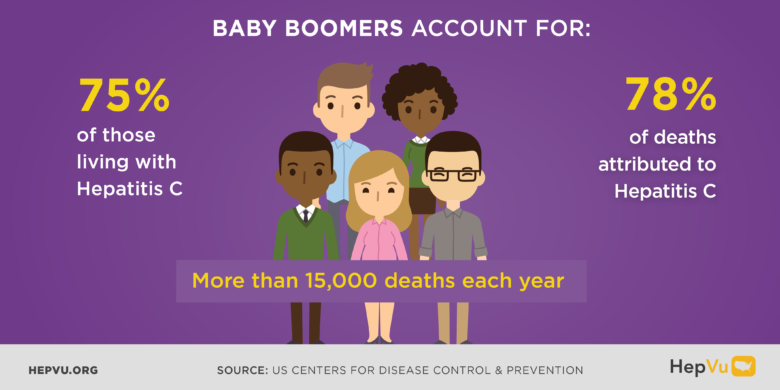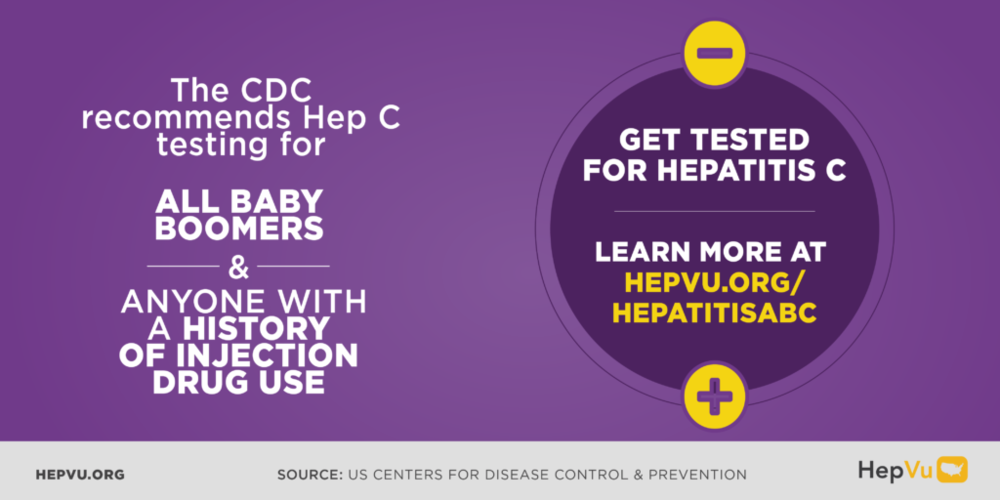Section Branding
Header Content
All Baby Boomers Need Hepatitis C Test, CDC Says
Primary Content
Baby Boomers are six times more likely to have hepatitis C than any other age group, the Centers for Disease Control and Prevention said.
Viral hepatitis is a leading cause of liver cancer in the United States and hepatitis C is the most common type of viral hepatitis.Baby boomers are the most at-risk age group for hepatitis C, the CDC says.
Seventy-five percent of the 3.5 million Americans already living with hepatitis C are baby boomers born from 1945 to 1965. Baby boomers are at much greater risk for death from the virus.
In Georgia, that’s almost a quarter of the population. The state also ranks 20th in desirability for retirees, according to a 2018 analysis by WalletHub. Those between 45 and 64 years old are the fastest growing age group in the region, according to Census figures.
Dr. Laura Cheever with the National HIV and AIDS Bureau said anyone in the baby boomer generation should get tested at least once. People who have a history of having shared injection drugs and those who are currently using illegal IV drugs should get tested regularly.
The rate of new hepatitis C infections nearly tripled between 2010 and 2015, according to the CDC, and approximately half of all deaths in 2015 occurred among persons aged 55 to 64 years old.
"However, deaths associated with HCV are largely underestimated," the CDC said in 2015. "The only large U.S. study of deaths among persons with confirmed HCV infection indicated that only 19 percent had HCV listed anywhere on the death certificate despite 75 percent having evidence of substantial liver disease."
While the opioid crisis is fueling new infections among intravenous drug users, those born between 1945 and 1965 are more likely to die from the disease because this generation is more likely to have had the virus longer without knowing it.
Cheever said while baby boomers might not know they’re at risk, drug users often avoid the medical system.
"So it's important that if you know someone in your life that you know has a history of injecting drugs that you encourage them to get into care so they can be tested," Cheever said.
Because most people who have the virus don’t have symptoms, getting tested is the only way to know if treatment is needed.
"Most people with hepatitis C do not have any symptoms so they don't know that they have hepatitis C unless they are tested," Cheever said. "Which is why we are really stressing the importance of testing on May 19, which is hepatitis testing day."
The good news, Cheever said, is a simple blood test from a physician can let patients know if they've been exposed to the virus and, if so, a second test can determine whether treatment is necessary.
Cheever said she's excited by a once-a-day pill that kills the virus in 12 to 24 weeks with minimal side effects.
"So we're really in a new era of being able to combat hepatitis C and cure people of their infection before they go on to develop those chronic complications that can result in death, such as liver cancer or end stage liver disease," Cheever said.
To further spread awareness of the need for testing, the CDC is hosting a social media campaign on Saturday, which has been dubbed Hepatitis Testing Day.
here



